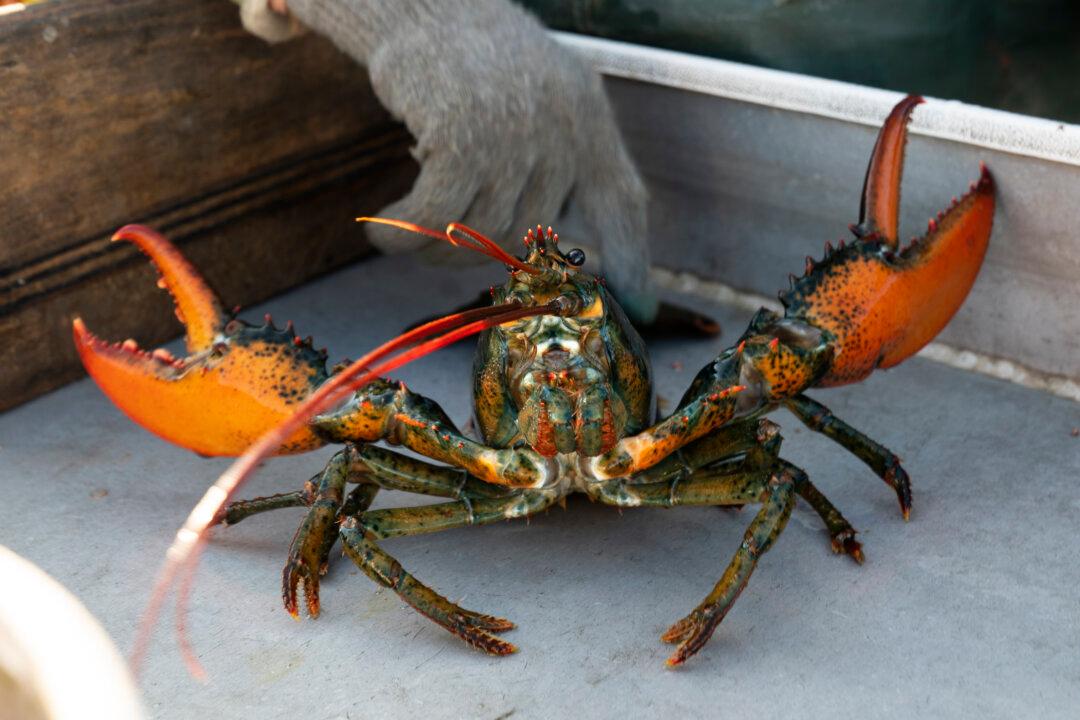PORTLAND, Maine—Maine’s congressional delegation is using the $1.7 trillion federal spending bill to try to delay for six years new protections for endangered whales to protect Maine’s lobster industry.
The amendment would leave existing lobster fishing regulations in place for the time being, thwarting new restrictions aimed at protecting North Atlantic right whales, which are vulnerable to entanglement in fishing gear. A federal judge previously delayed new rules until 2024 to give the government time to craft them. The congressional proposal would extend the status quo until the end of 2028.





